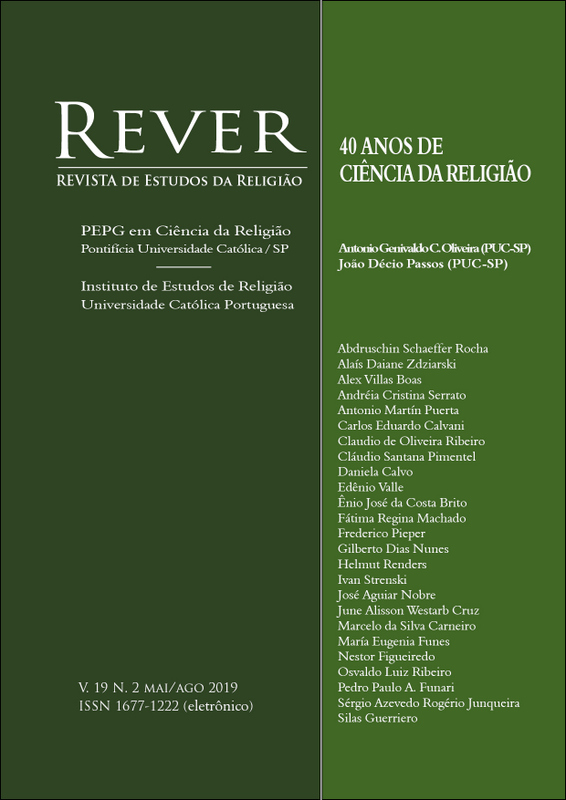O princípio pluralista como elemento articulador de pesquisas na área “Ciências da Religião e Teologia”
DOI:
https://doi.org/10.23925/1677-1222.2019vol19i2a5Palavras-chave:
Princípio pluralista, Teologia, Ciência da religião, EpistemologiaResumo
A pesquisa foi desenvolvida considerando-se o debate epistemológico que se tem dado no contexto da Área Ciências da Religião e Teologia no Brasil, em especial à relação entre estas duas disciplinas. O objetivo principal das análises feitas foi identificar os principais aspectos dessa relação e observá-la a partir do princípio pluralista. A pressuposição é de que tal princípio, devido às suas bases conceituais oriundas dos estudos culturais decoloniais, pode oferecer maior visibilidade ao poder criativo das fronteiras que existem entre as duas frentes em questão nessa análise e pode facilitar as reflexões de ambas ao ser um elemento articulador das pesquisas, sobretudo aquelas motivadas por realidades, temáticas e situações forjadas pelos “entrelugares das culturas” e por experiências fronteiriças. O passo metodológico principal da pesquisa foi o cotejamento do princípio pluralista com aspectos de destaque evidenciados no Documento da Área Ciências da Religião e Teologia (2017) da Capes (Coordenação de Aperfeiçoamento de Pessoal de Nível Superior), órgão que acompanha e avalia o Sistema Nacional de Pós-Graduação brasileiro. Deu-se atenção especial à “árvore do conhecimento” e aos perfis dos egressos pós-graduados nessas duas frentes. Entre as perspectivas conceituais, priorizamos: i) as noções de diálogo multi, inter e transdisciplinar e a valorização da pluralidade metodológica, ii) a preocupação específica com a diversidade religiosa, e iii) o caráter propositivo, prático e de inserção social inerente ao princípio pluralista.
Downloads
Publicado
Como Citar
Edição
Seção
Licença
Autores que publicam nesta revista concordam com os seguintes termos:
- Autores mantém os direitos autorais e concedem à revista o direito de primeira publicação, com o trabalho simultaneamente licenciado sob a Licença Attribution-NonCommercial 4.0 International, que permite o compartilhamento do trabalho com reconhecimento da autoria e publicação inicial nesta revista.
- Autores têm autorização para assumir contratos adicionais separadamente, para distribuição não exclusiva da versão do trabalho publicada nesta revista (ex.: publicar em repositório institucional ou como capítulo de livro), com reconhecimento de autoria e publicação inicial nesta revista.


